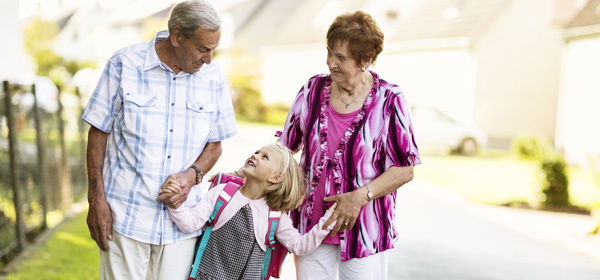Almost half of those caring for vulnerable relatives are grandparents, and even great grandparents, and many are not getting the support they need, according to a new report by the Australian Institute of Family Studies.
A national survey, which involved telephone interviews with 2203 foster and relative/kinship carers in late 2016, was aimed at gaining a better understanding of the needs of the carers.
It found that nearly one-half of carers were aged between 50 and 64 years, and that substantial numbers were aged 65-69 (12 per cent) or 70 and older (six per cent).
Most carers had an annual gross household income of less than $60,000, while one-fifth were relying on less than $30,000.
Institute Director Anne Hollonds says the report, Working together to care for kids: A survey of foster and relative/kinship carers, found relative/kinship carers were less likely to access the professional support and training they needed than foster carers.
“Both foster carers and relative/kinship carers reported a need for more professional services including child counselling, respite care and access to support groups,” she said.
“However, relative/kinship carers were less likely than foster carers to access support services or training sessions, despite often having been approached by child protection agencies to take on the care of a young relative.
“Most of the relative/kinship care is falling to grandparents – with two-thirds of kinship carers now grandparents or even great-grandparents.”
Ms Hollonds said most relative/kinship carers were grandmothers who were not financially well-off and many were experiencing health problems.
“They take on the care of a vulnerable child who has been abused or neglected, often with limited support or preparation themselves for the complex challenges that lie ahead of them,” she said.
The report found that the children commonly lived with the carer for an average of three to four years and that many had been exposed to family violence and alcohol and drug issues.
“Despite these complex issues, just over a third of relative/kinship carers ever received some form of training compared to nine in 10 foster carers,” she said.
“In some cases, there was a lack of awareness of what services were available. For example, many carers were unaware of the Grandparent Adviser phone line (1800 245 965) which provides assistance to all carers, although the majority of those who had tried it found it to be very useful.”
Institute Senior Research Fellow, Dr Lixia Qu said that despite the difficulties, an overwhelming 90 per cent of all carers believed they were making a positive difference in a child’s life, and that caring for these children was a rewarding experience.
The Department of Human Services offers support here for grandparents caring for children.
Have you had experience caring for a young relative? Did you know about the resources available? What were the main problems?
Related articles:
Babysitting grandparents live longer
Centrelink assistance for grandparents
Help! I don’t love my grandson

